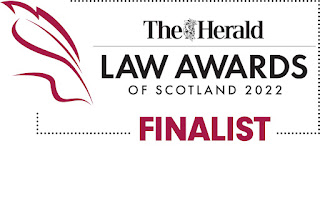Founded in 1594, the Society of His Majesty's Writers to the Signet "may be supposed...the oldest extant professional body in the world."
The "Signet" was one of the ancient Crown seals of the Kingdom of Scotland:
"The publick Seals in Scotland are the Signet, the Great Seal, the Quarter Seal, and the Privy Seal. Summons for citing Persons before the Lords of Session, Letters of Horning, Caption, Inhibition, Arrestment, and other personal or real Diligence, Signatures and Precepts pass the King's Signet"
(William Forbes, "Institutes of the Law of Scotland" I, iv, 187)
The famous Great Seal was appended to Royal Charters and the like. The earliest extant impression of the Great Seal dates back over 1,000 years, being that of King Duncan II who reigned briefly in 1094 (having survived being held hostage by William the Conqueror for 15 years from the age of 12). For a fascinating study of the Seal under the various monarchs see "History of Scottish Seals").
In contrast, the Signet was the private seal of the early Scottish kings, "appended to the private letters or orders of the Sovereign regarding summonses and executions of the law and later to writs and warrants of the Court of Session issued in the Sovereign's name". The Writers to the Signet were those authorised to supervise its use and, later, to act as clerks to the Courts. The earliest recorded use of the Signet was in 1369. Writers to the Signet evolved into lawyers and, in 1532, were recognised as the original solicitors for litigation in the Supreme Courts as members of the College of Justice established by King James V. Writers to the Signet were included as members of the College of Justice when it was established in 1532, but the Society did not formally appear until 1594, when the King's Secretary, as Keeper of the Signet, granted Commissions to a Deputy Keeper and eighteen other writers.
Today, the WS Society is "at the heart of Scotland's law", maintains the magnificent category-A listed Signet Library and aims to "advance and disseminate knowledge and education in law and legal practice for public benefit...and promote high standards of expertise and professional conduct." We congratulate Lynn on her appointment and could not be happier to support the Society in all that it seeks to achieve.



